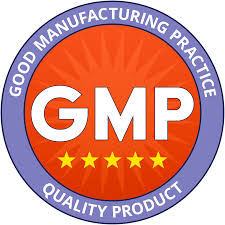GMP - Good Manufacturing Practice

Good Manufacturing Practice (GMP), often referred to as Current Good Manufacturing Practice (cGMP), is a set of globally recognized guidelines and principles aimed at ensuring that products are consistently produced and controlled to meet quality standards. These standards are essential for safeguarding public health, particularly in industries such as pharmaceuticals, food, cosmetics, and medical devices.
GMP encompasses a wide range of practices and principles that emphasize quality management throughout production processes and facilities. Key principles include:
- Cleanliness and Hygiene: Maintaining clean and controlled environments to prevent contamination and cross-contamination.
- Documentation: Establishing clear, unambiguous procedures and maintaining detailed records to ensure traceability and consistency.
- Training and Qualification: Ensuring personnel are adequately trained for their roles and responsibilities.
- Validation and Quality Control: Validating critical processes and conducting regular quality control to detect and prevent errors.
- Complaint Handling and Recall: Implementing systems for addressing product complaints and executing recalls if necessary.
- Continuous Monitoring: Regular inspections and audits to ensure ongoing compliance with GMP standards.
GMP also involves risk management practices to identify and mitigate potential hazards during manufacturing, processing, and distribution. A cornerstone of GMP is its proactive and systematic approach to ensuring quality, which extends throughout the product lifecycle.
Good Manufacturing Practice emerged as a response to serious public health incidents caused by contaminated or poorly manufactured products, such as the Elixir Sulfanilamide tragedy in 1937 and the thalidomide crisis in the late 1950s. These events highlighted the need for rigorous quality standards, leading to the development of GMP regulations. The first WHO GMP guidelines were introduced in 1968, and the U.S. FDA established legally binding GMP rules in 1978.
GMP regulations are enforced by national and international regulatory agencies, including:
- United States: The FDA enforces GMP under Title 21 of the Code of Federal Regulations (CFR), emphasizing current practices and technological advancements.
- European Union: The European Medicines Agency (EMA) oversees GMP compliance, harmonizing activities across member states.
- World Health Organization (WHO): Provides guidelines adopted by over 100 countries, particularly in developing regions.
- Other Nations: Countries such as Japan, India, Canada, and Australia have their own GMP frameworks tailored to national needs but often align with WHO or ICH (International Council for Harmonisation) standards.
GMP applies to several critical industries to ensure public health and safety:
- Pharmaceuticals: GMP governs the production and quality control of medications, including sterile products, biologics, and active pharmaceutical ingredients (APIs).
- Food: Ensures food products are manufactured safely, free of contaminants, and meet quality standards.
- Cosmetics: Focuses on preventing contamination and ensuring consistent quality in skin care, hair care, and beauty products.
- Medical Devices: Covers production, testing, and quality assurance to ensure devices are safe and perform as intended.
- Dietary Supplements: Ensures supplements are produced under sanitary conditions and contain the ingredients listed on their labels.
Modern GMP emphasizes the integration of quality into every stage of production. This approach, sometimes referred to as Quality by Design (QbD), ensures that quality is proactively built into the manufacturing process rather than being inspected into the final product. Additionally, GMP supports the cultivation of a strong quality culture within organizations, making quality a shared responsibility among all personnel.
GMP also adapts to the unique risks and requirements of specific products, such as vaccines, radiopharmaceuticals, and herbal medicines, ensuring that safety and effectiveness are maintained across diverse industries. The guidelines also promote global harmonization of quality standards, enabling consistency in international supply chains and enhancing consumer trust.
Although the term "GMP-certified" is often used, regulatory agencies issue confirmations of compliance rather than certifications. These documents verify that manufacturers adhere to GMP standards, which are crucial for obtaining and maintaining marketing authorizations, export approvals, and consumer trust.
Modern GMP emphasizes a proactive quality culture within organizations. Regulatory bodies like the FDA advocate for data integrity and employee accountability in maintaining high-quality standards. This shift encourages manufacturers to adopt advanced technologies and practices to meet dynamic industry needs.
If you want to know more about GMP, visit the relevant pages by the FDA, WHO, EMA, and the EU.

